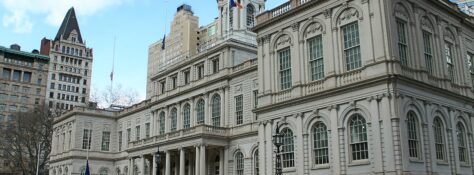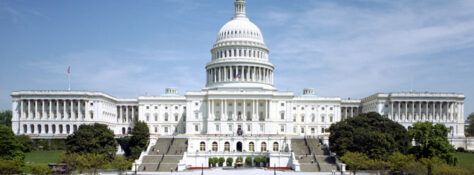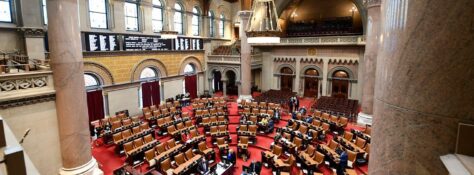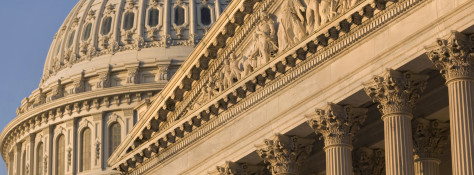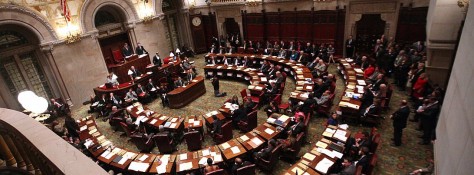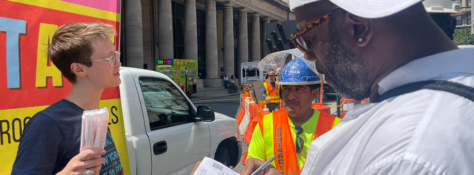News
"We were fortunate this year to have a field of candidates with a strong track record on environmental action. In many races, we had to choose between contenders who all demonstrated serious commitments to climate; in those instances, we focused on candidates who have consistently delivered real results,” said Julie Tighe, President of the New York League of Conservation Voters. “In the mayoral race, Andrew Cuomo and Brad Lander rose above the rest. Governor Cuomo was instrumental in passing the Climate Leadership and Community Protection Act and made generational investments in clean air, clean water, and parks. Comptroller Lander has been a leader on climate finance, driving fossil fuel divestment from pension funds, helping to pass the nation-leading plastic bag ban and Styrofoam restrictions, and championing environmental causes throughout his time on the City Council. We are proud to endorse this group of candidates and look forward to working with them to continue advancing environmental progress at the local level.”
Learn MoreWhen the Inflation Reduction Act was signed into law in August of 2022, it was the biggest, boldest climate legislation in U.S. history. It promised to accelerate the clean energy transition, create green jobs across the country, and invest in a healthier, more sustainable future.
Now those promises are at risk of being broken. The reconciliation bill that passed the House, if enacted, would unravel key provisions of the IRA, rescind billions in key climate investments at the EPA and Department of Energy, and pull the rug out from under American families and businesses that have begun to rely on clean energy tax credits.
Learn MoreVoters in the vast majority of school districts with ESBs on the ballot said yes to protecting kids’ health, reducing harmful diesel pollution, and accelerating the transition to a fully electric school bus fleet by 2035.
Learn MoreWith New York State having passed its FY26 budget, NYLCV turns its attention to key legislation to help ensure the continued reduction of greenhouse gas emissions across the state.
"The state needs to push forward on a full complement of projects if we are going to meet our climate goals," said NYLCV Policy Director Pat McClellan. "During the remainder of the legislative session we will continue to work with the governor and state legislature to address critical measures that were left on the table during budget negotiations, including the NY HEAT Act, a Clean Fuel Standard for transportation, and Advanced Automatic Voter Registration, to name just a few."
Learn MoreAt this time of political upheaval, New York state must simultaneously work to protect our environment and strengthen our democracy. There’s no denying the two go hand in hand. Enter the Enhanced Automatic Voter Registration bill.
The bill, passed by the state Senate in January, would provide for automatic voter registration and preregistration for persons applying for a driver’s license or a state ID through the DMV and for Medicaid enrollees.
“Our democracy is stronger when access to voting is more accessible, and our elections are free from undue interference,” said Bill sponsor and Deputy Senate Leader Mike Gianaris. “There should not be roadblocks to the ballot box, whether from obstacles to registration or the inappropriate influence of big money. I am proud the State Senate is once again leading the way on protecting our democratic institutions.”
Learn MoreThis administration is seeking to roll back decades of bipartisan environmental protections that ensure basic rights, while gutting the EPA. While the Trump administration wants to pretend that the climate crisis doesn’t exist, New York knows better.
Learn MoreThe budget is one of the key opportunities for NYLCV to advance policies that fight climate change, protect public health, and promote sustainability. But how does the process work? Let’s break it down.
Learn MoreThe NY HEAT Act means modern, efficient, and clean energy upgrades for entire neighborhoods — at no cost to residents. This Yonkers community was transformed — see how it can work for all of New York.
Learn More
